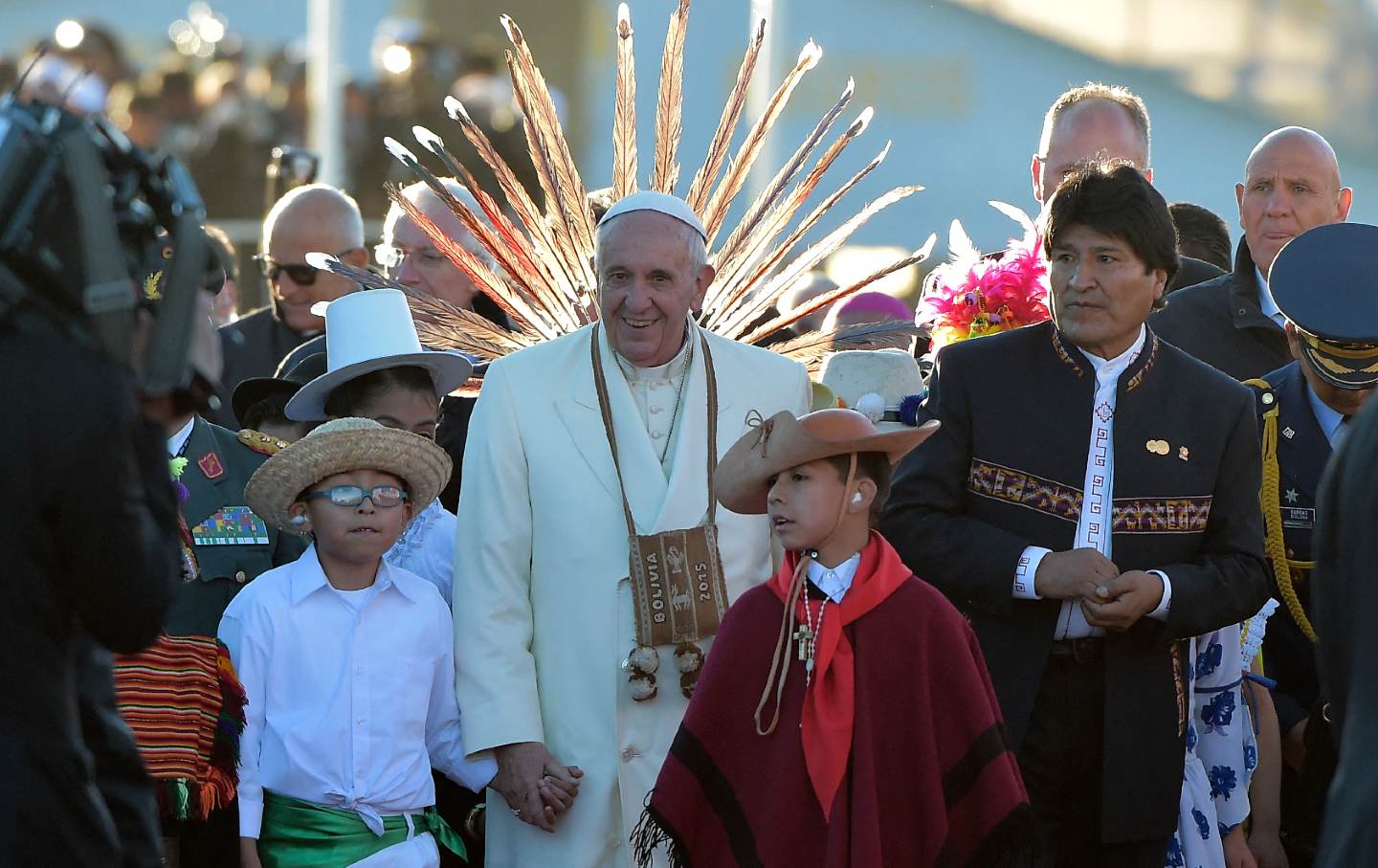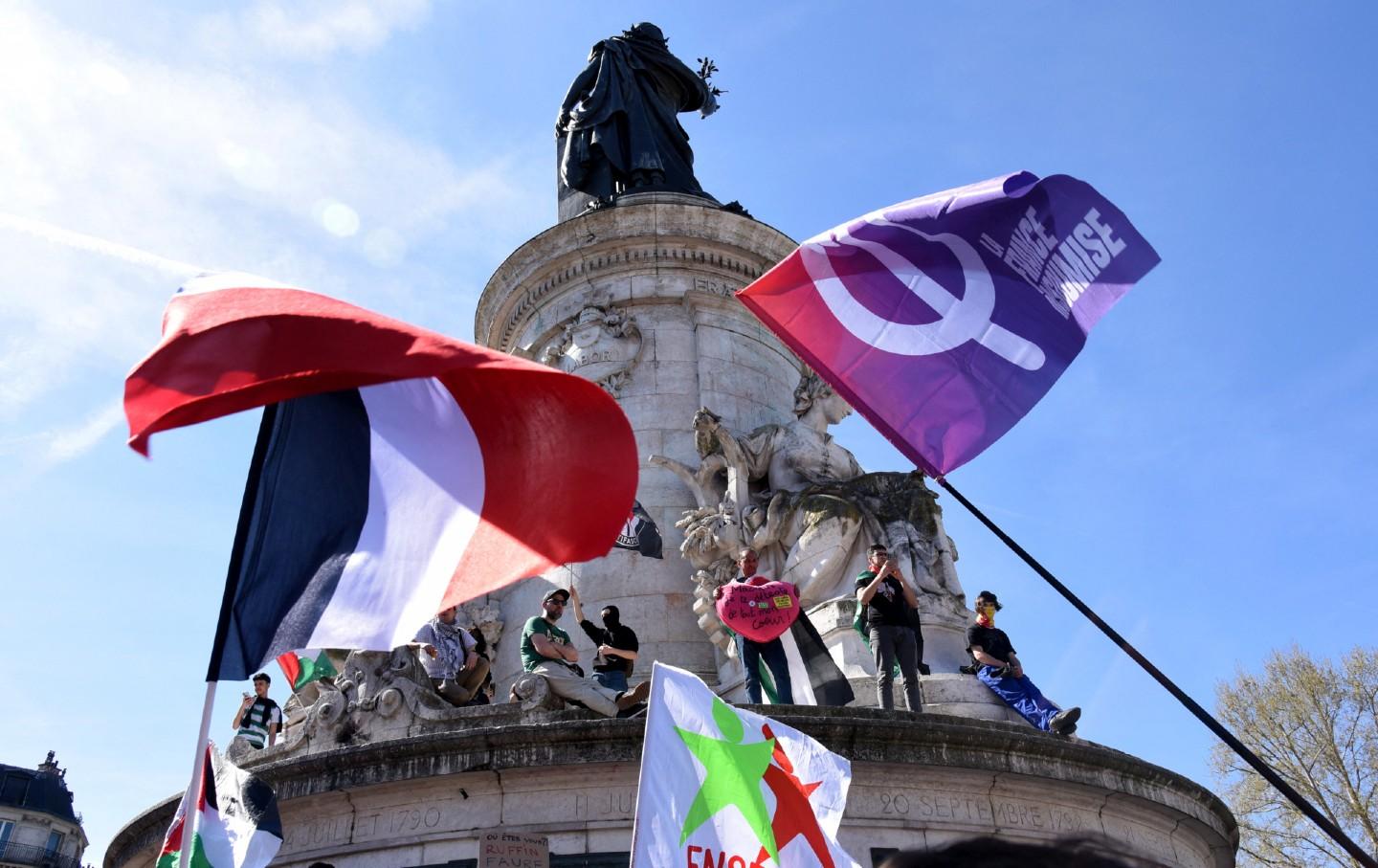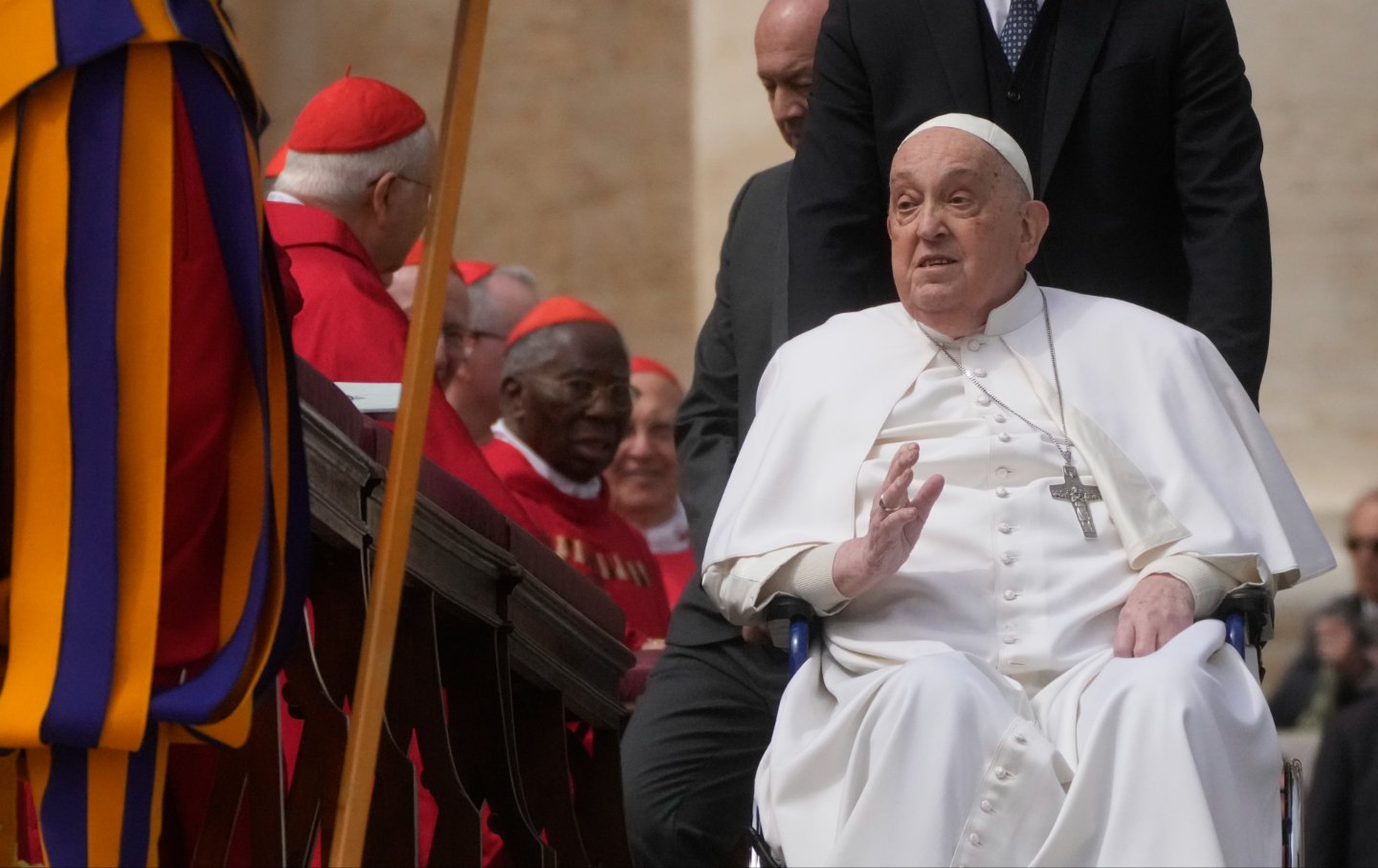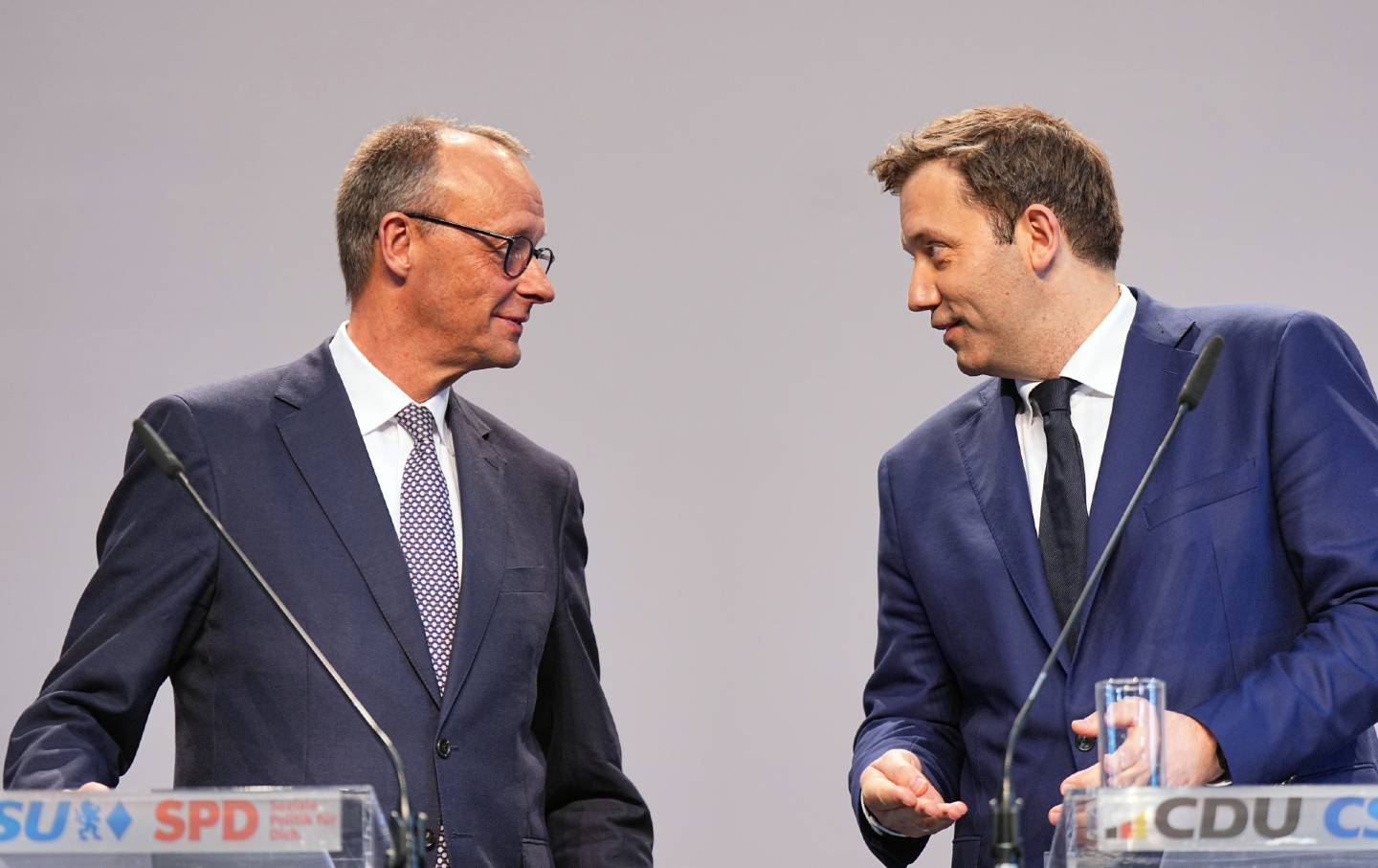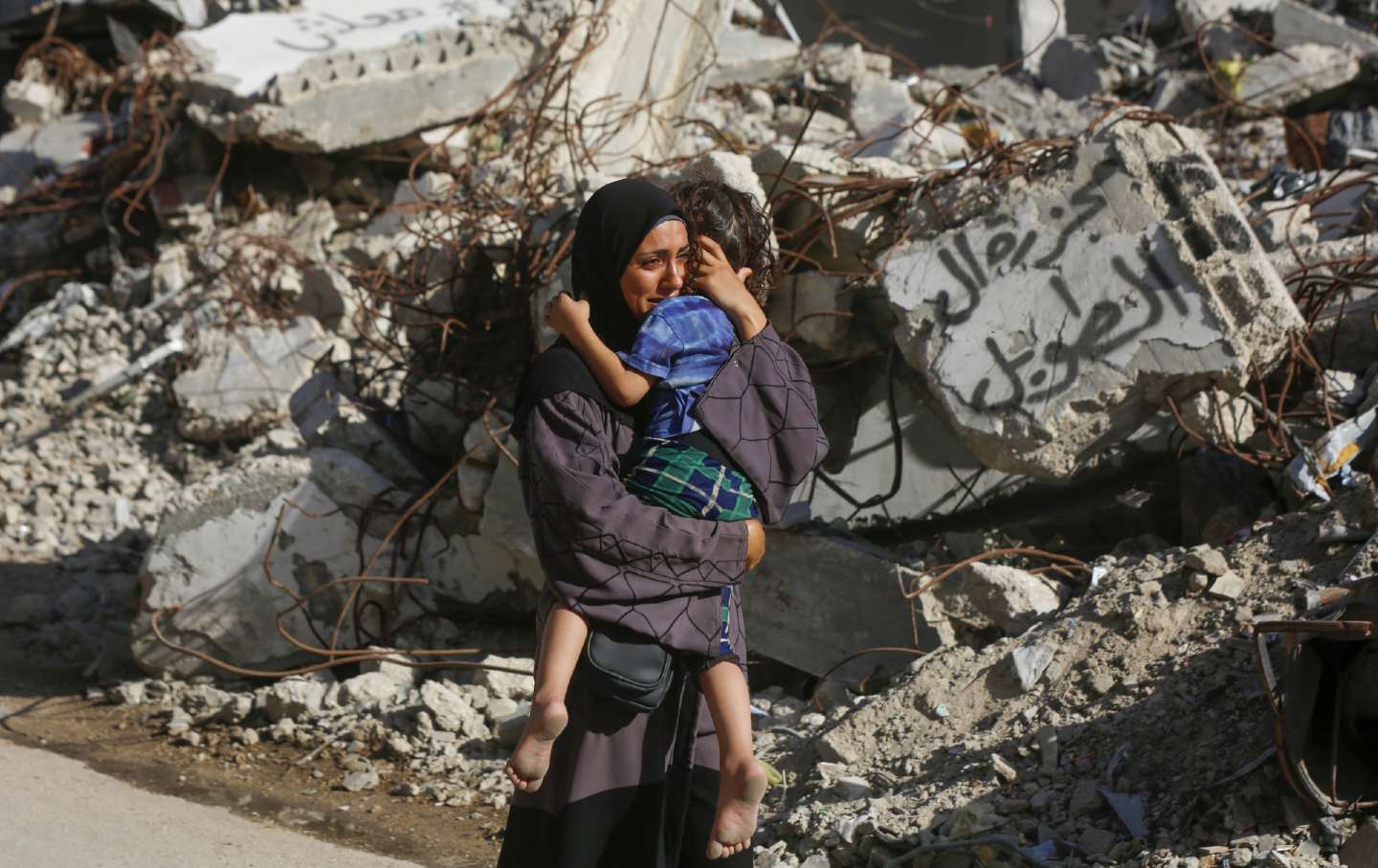Meet the Reactionary International
Conservative leaders from across Europe met in Brussels, but we know very little about this network. A new consortium has been launched to investigate its global infrastructure.
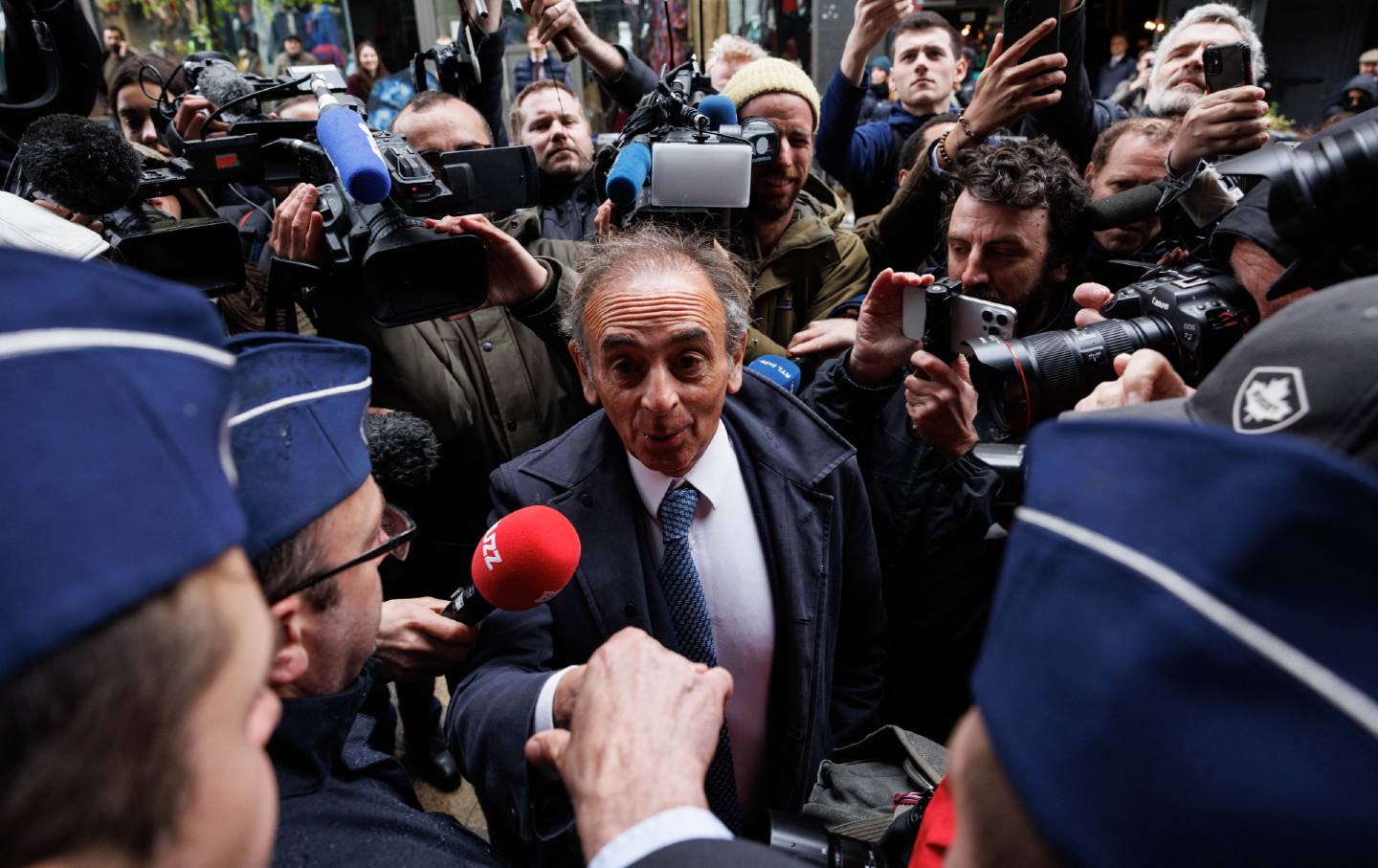
French far-right politician Eric Zemmour is denied access by Belgium police to the “NatCon” national conservatism conference gathering hard-right European politicians at the Claridge hotel in Brussesl on April 16, 2024, as Brussels authorities ordered its shutdown.
(Simon Wohlfahrt / AFP via Getty Images)Last week, right-wing leaders from across Europe traveled to Brussels for the National Conservative conference celebrating the “virtues of nationalism”—and promising “an alternative vision for Europe” ahead of June’s EU elections. After previous annual meetups in Washington, Rome, and London, NatCon is now an established forum for railing against “cultural Marxism” and mass immigration. Hungarian Prime Minister Viktor Orbán was set to return as the headline act, joined by the UK’s Nigel Farage, and even former UK home secretary Suella Braverman. In the weeks running up to this year’s NatCon, its promotions were triumphant: Polls on the EU elections have far-right parties on track to win around one-quarter of seats and moving ever closer to power.
But just hours into the two-day conference, Brussels police stormed the venue, and the local mayor, Emir Kir, issued a municipal ban on the meeting in the name of “public safety.” NatCon speakers like Farage and French politician Éric Zemmour spilled out of the venue, where TV cameras and sprays of microphones awaited their comment. Farage told reporters, “This is the complete old Communist-style, where if you don’t agree with me, you’ve got to be banned, you’ve got to be shut down.”
The logic behind Kir’s move sounds compelling: By telling the figures of the far-right leadership that they are “not welcome” in Brussels, the mayor hoped to weaken their public standing and their prospects in the EU elections. But this mistakes the true sources of the far right’s growing power—and in doing so, risks emboldening their coalition and amplifying its claim to persecution by the political establishment.
While pundits and policymakers focus on the pyrotechnics of conferences like NatCon, far less attention has been paid to the infrastructure that connects, sustains, and supports the far-right leaders on their rosters. For years, a global network has been in formation—bringing together judges and journalists, foundations and financiers, academics and entrepreneurs—with the explicit aim to propel the far right both within and beyond the boundaries of electoral politics. This is the Reactionary International: far less visible—but far more powerful—than leaders like Marine Le Pen, Farage, or Braverman could ever be on their own. To defeat the far right, we should focus less on deplatforming its leaders—and more on dismantling the infrastructure on which they rely.
Consider Orbán, whose government stands behind NatCon sponsors like the Danube Institute and the Mathias Corvinus Collegium private university. Right-wing pundits praise Orbán for his pro-family and anti-migrant line, but he doesn’t hold power thanks to policies alone. His government relies on secret contracts with the Israeli NSO Group to spy, track, and repress its opponents through Pegasus technology. The NSO Group is just one of several Israeli spyware firms—including Rayzone, Cellebrite, Cytrox, and Candiru—that have been linked to recent right-wing governments in Poland, India, and Mexico, facilitating a crackdown on dissent that has served to buttress their respective political projects.
If Orbán has imported elements of the Reactionary International, he has also exported them. In 2015, Orbán’s allies incorporated the secretive Danube Business Consulting Ltd at the UK Companies House, bringing together Tamas Lanczi (currently head of Hungary’s ironically titled Sovereignty Protection Agency), Árpád Habony (Orbán’s “unacknowledged spin doctor”), and even US Republican Party strategist Arthur J. Finkelstein. Campaign consulting firms like Danube—the names of which are rarely known, though their personnel seem to pop up in country after country—ensure that Orbán’s key messages do not merely remain in Hungary but also arm fellow travelers of the far-right across Europe, in the United States, and beyond.
In the transmission of these ideas, policies, and communications strategies, they are aided as well by a network of think tanks and foundations. In 2017, the Hungary-based Free Market Foundation hosted the Europe Liberty Forum, convening think tank leaders from 34 countries across the Atlas Network to develop a common program—a program that, thousands of miles from Budapest, has been applied to advance oil and gas interests against Indigenous sovereignty in Canada and the Amazon reforestation in Brazil. Still, Atlas is registered in Arlington, Virginia, as a tax-exempt 501(c)3 nonprofit organization, receiving over $1 million from Exxon Mobil and over $500,000 from the Charles Koch Foundation alone.
These examples represent just three sectors of the Reactionary International, seen from the perspective of just one country. The truth is that we know little about the actions—whether legal or illicit—of this global network; the little scrutiny it has come under is thanks to the careful work and courageous investigations of journalists and whistleblowers across the world. The result is that many of the most nefarious campaigns to corrode our democracies go unnoticed and unpunished.
Today, a new research consortium launches to redress those corrosive effects. Convened by the Latin American Council of Social Sciences, Transform! Europe, and the Progressive International, it aims to bring researchers from across the world to investigate the activities of the Reactionary International. The goal is not only to name and shame the entities that comprise this network. The consortium also aims to articulate how this network operates to advance reactionary politics around the world by developing detailed case studies of its coups, insurrections, and campaigns.
The findings of these case studies are damning—and help to clarify how these forces are collaborating. Specifically, they illustrate the need to look beyond groups traditionally identified as “far right.” Whether in the 2019 Bolivian coup, the 2021 Capitol insurrection, or the 2023 Spanish revolt at Ferraz, the consortium’s findings suggest that such forces’ rise depends on sources of support from much deeper inside the so-called “establishment”—through multilateral institutions like the Organization of American States or nongovernmental organizations like the National Endowment for Democracy.
The fact that the EU’s own former border agency chief is now a candidate for Le Pen’s National Rally—or that Italy’s Giorgia Meloni increasingly takes the lead in negotiating with North African dictators on the EU’s behalf—show that the Reactionary International is not made of upstart outsiders rebelling against the institutions. Rather, they’ve made their place in the corridors of power—and use them to welcome their allies into the fold.
The forces that gathered in Brussels last week are betting that we won’t be able to catch up with them—that they will continue to proclaim the principles of national democracy at the podium while coordinating in the shadows to undermine it. Let’s prove them wrong.
Hold the powerful to account by supporting The Nation
The chaos and cruelty of the Trump administration reaches new lows each week.
Trump’s catastrophic “Liberation Day” has wreaked havoc on the world economy and set up yet another constitutional crisis at home. Plainclothes officers continue to abduct university students off the streets. So-called “enemy aliens” are flown abroad to a mega prison against the orders of the courts. And Signalgate promises to be the first of many incompetence scandals that expose the brutal violence at the core of the American empire.
At a time when elite universities, powerful law firms, and influential media outlets are capitulating to Trump’s intimidation, The Nation is more determined than ever before to hold the powerful to account.
In just the last month, we’ve published reporting on how Trump outsources his mass deportation agenda to other countries, exposed the administration’s appeal to obscure laws to carry out its repressive agenda, and amplified the voices of brave student activists targeted by universities.
We also continue to tell the stories of those who fight back against Trump and Musk, whether on the streets in growing protest movements, in town halls across the country, or in critical state elections—like Wisconsin’s recent state Supreme Court race—that provide a model for resisting Trumpism and prove that Musk can’t buy our democracy.
This is the journalism that matters in 2025. But we can’t do this without you. As a reader-supported publication, we rely on the support of generous donors. Please, help make our essential independent journalism possible with a donation today.
In solidarity,
The Editors
The Nation

